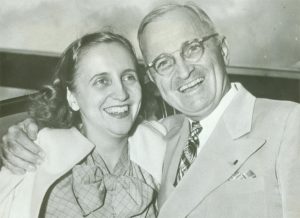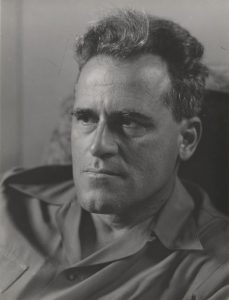Before getting to the Puffster, I’d like us to recognize three other noteworthy musical events that have fallen on this date.

On March 16, 1736 – 284 years ago today – the Italian composer Giovanni Pergolesi died in Pozzuoli Italy, a city that today is part of metropolitan Naples. Pergolesi passed away at the utterly obscene age of 26. He was born in Jesi, in central Italy not far from the Adriatic Sea. He spent his professional life – what there was of it – in Naples, where he experienced great success. He died of tuberculosis and, according to one source, “his ill health was probably due to his notorious profligacy”. Profligate or not, he was amazingly talented, and his early death robbed us all of someone special. We’re reminded of Schubert’s epitaph, written by Franz Grillparzer: “Music here has buried a rich treasure, but still fairer hopes.”

On this day in 1947 – 73 years ago today – the coloratura soprano Margaret Truman (1924-2008), the daughter of then-President Harry Truman, made her professional radio debut when she sang with the Detroit Symphony. Ms. Truman continued to perform on stage, radio, and television through 1956. In the early years of her career, she received neutral or positive reviews, no doubt out of deference to her father, the sitting POTUS. However, sooner or later someone was going to point out that the Emperor’s daughter had little by way of vocal clothing, and that event occurred in 1950. That was when Paul Hume, the highly respected music critic for The Washington Post, wrote that Margaret Truman:
“cannot sing very well. She is flat a good deal of the time. And still cannot sing with anything approaching professional finish.”
President Truman took this less-than-glowing review of his only child poorly. He wrote to Hume:
“Someday I hope to meet you. When that happens, you’ll need a new nose, a lot of beefsteak for black eyes, and perhaps a supporter below!”
Well, of course, Truman’s letter was published by The Washington Post and it became something of an international scandal.

On March 16, 1990 – 30 years ago today – the American composer Ernst Bacon died in the San Francisco Bay Area town of Orinda at the age of 91, two months shy of his 92nd birthday. During the spring of 2019, I dedicated my Dr. Bob Prescribes posts (which appear every Tuesday on my Patreon subscription page) to the music of a bevy of underappreciated, under-played mid-twentieth century American composers. Bacon is one of those composers I have not yet written about but be assured that before too much more time passes I will.
On now to the major topic of today’s Music History Monday.
Puff the Magic Dragon

We mark the first appearance on the Billboard charts on March 16, 1963 – 57 years ago today – of the song Puff, the Magic Dragon. Written by Leonard Lipton and Peter Yarrow, recorded by Peter, Paul and Mary and released on January 15, 1963 as a 45-rpm single by Warner Brothers, the song climbed to number 2 on the Billboard charts on March 30, two weeks after it hit the charts on March 16.
I am frequently asked by parents “how do we get our kids interested in music.” As I’ve said before, I have no magic-bullet answer to this question beyond encouraging parents to expose their kids to a variety of music whenever they can: in the car, at home, wherever, and to show an equal willingness to listen to the music their kids like, as well.
In terms of learning to listen to music, nothing had a greater impact on me than my parents’ record collection. Crummy though was the fidelity of our monaural “record player”, I loved those records, with their great cover art and the tactile pleasure of sliding them out of their jackets and putting them on the turntable.
My folks loved all sorts of music, and through their records – which they gratefully allowed me to play and probably mess up to my heart’s delight – I learned to love that music as well. I learned the Beethoven symphonies from Toscanini’s set with the NBC Orchestra (on RCA). I learned much of the nineteenth century piano repertoire from recordings by our household’s pianistic deities: Vladimir Horowitz, Emil Gilels, Sviatoslav Richter, and Artur Rubinstein; the violin repertoire from Jascha Heifetz, Mischa Elman, and Nathan Milstein; the bel canto repertoire from Joan Sutherland, Renata Tebaldi, Roberta Peters, and Maria Callas. I discovered jazz through Erroll Garner’s miraculous Concert by the Sea (on Columbia) and Dave Brubeck/Paul Desmond’s Time Out album. My folks had scads of Arthur Fiedler and the Boston Pops records, as well as original cast albums from Broadway Shows (which I adored).
My parents also had a lots of folk albums; nothing so young and hip as Bob Dylan, but rather the Kingston Trio, Theo Bikel, and Peter, Paul & Mary.

OMG, how I loved Peter, Paul & Mary (in particular, Mary Travers [1936-2009] who, for the eight, and nine, and ten-year-old me, was only the most perfect, beautiful, and talented person in the world). The songs Peter, Paul & Mary sang, and the innocence and purity (and pain) those songs embodied became an indelible part of my DNA. I know I’m speaking for every one of us: the music we loved as children is virtually part of who we are today and will remain so to our dying breaths.

Like pretty much every other kid, I had a special place in my heart for the fairy-tale song Puff the Magic Dragon. The song’s lyrics are based on a poem written in 1959 by the American author, filmmaker, lyricist, and inventor Lenny Lipton (born 1940), who was then a 19-year-old student at Cornell University. Lipton’s lyric had been inspired by a poem by Ogden Nash (1902-1971) titled The Tale of Custard the Dragon. Nash’s poem was written in 1936 and it tells the story of a “realio, trulio little pet dragon.”
For all of its appeal to children, the real story of Puff the Magic Dragon is the loss of innocence and imagination that sadly but almost inevitably occurs as we grow older.
The action of the song takes place “by the sea” in an imaginary place called “Honalee.” It’s there that a little boy named Jackie Paper and a ferocious dragon named Puff become the greatest of friends, and they “froliced together in the autumn mists” on a daily basis. But as Jackie grows older, his mind, heart, and interests go elsewhere, and one day he fails to visit Puff. Puff understands what has happened and is devastated; heartbroken, he retreats to his cave, presumably never to be seen again. (For our information, this same plot device – an aging child’s loss of interest in his “imaginary friends” – powers the Pixar movie Toy Story 3.)
This then is the bittersweet and very adult message behind Puff the Magic Dragon.
Until it wasn’t.
It started with an article in Newsweek magazine, which in 1964 ran a cover story discussing “hidden drug references” in popular music. The song Puff the Magic Dragon was singled out as carrying just such an insidious message to the children of America, a song that encouraged the smoking (taking a “drag on” or puffing) MARIJUANA!
REEFER MADNESS!!
And so the piling on began. It was pointed out that in China, “chasing the dragon” was a well-established reference to inhaling narcotic vapor. The name of Puff’s friend “Jackie Paper” was identified as a reference to rolling paper. The phrase “by the sea” was reinterpreted as meaning “by the C”, as in the letter “C” for cocaine. The “autumn mists” evoked in the song were said to represent marijuana smoke, and the land of “Honalee” was identified as a thinly veiled reference to the area around the Hawaiian village of Hanalei, where a particularly potent strain of weed was grown.
Everybody involved in creating, performing, and recording the song was flabbergasted. The poet Leonard Lipton wrote:
[“Puff is about the] loss of innocence and having to face an adult world. It’s surely not about drugs. I can tell you that at Cornell in 1959, no one smoked grass. I find the fact that people interpret it as a drug song annoying. It would be insidious to propagandize about drugs in a song for little kids.”
The song’s co-writer Peter Yarrow, the “Peter” in Peter, Paul & Mary stated unequivocally:
“As the principal writer of the song, I can assure you it’s a song about innocence lost. It’s easier to interpret ‘The Star-Spangled Banner’ as a drug song than Puff, the Magic Dragon. This is just a rumor that was promulgated by Newsweek magazine. There is no basis for it. It’s inane at this point and really unfortunate, because even in Hong Kong it’s not played because of the allegation it’s about drugs. But I assure you it’s not. When Puff was written, I was too innocent to know about drugs. What kind of a meanspirited SOB would write a children’s song with a covert drug message?”
Mary Travers – my Mary Travers – could only shake her head:
“Peter wrote the song, and it is not about marijuana. Believe me, if he wanted to write a song about marijuana, he would have written a song about marijuana.”
Mary, we believe you.
My friends – and you are my friends if you are with me right now – we are presently living in trying times. But these times will pass; they always do. They will pass more easily with the help of the tremendous gift, really, the miracle that is music. So: pull out your Peter, Paul & Mary; your Dylan; your Simon and Garfunkle; your B.B. King; your Louis Armstrong; your Tupac; your Beatles and Stones and Led Zeppelin and Milli Vanilli; your Bach, Mozart, Beethoven, Schubert, Brahms, and Bartók, whomever, and let their music do what it was designed to do: uplift our spirits and transform our lives.
We’ll get through this. Financially poorer, no doubt; but with our spirits intact.
For lots more on Peter, Paul & Mary and the American folk music scene in the 1950s and 1960s, I would invite you to join me on Patreon for tomorrow’s Dr. Bob Prescribes post.
Listen on the Music History Monday Podcast
Podcast: Play in new window
Subscribe: Apple Podcasts | Spotify | Pandora | iHeartRadio | RSS | More
